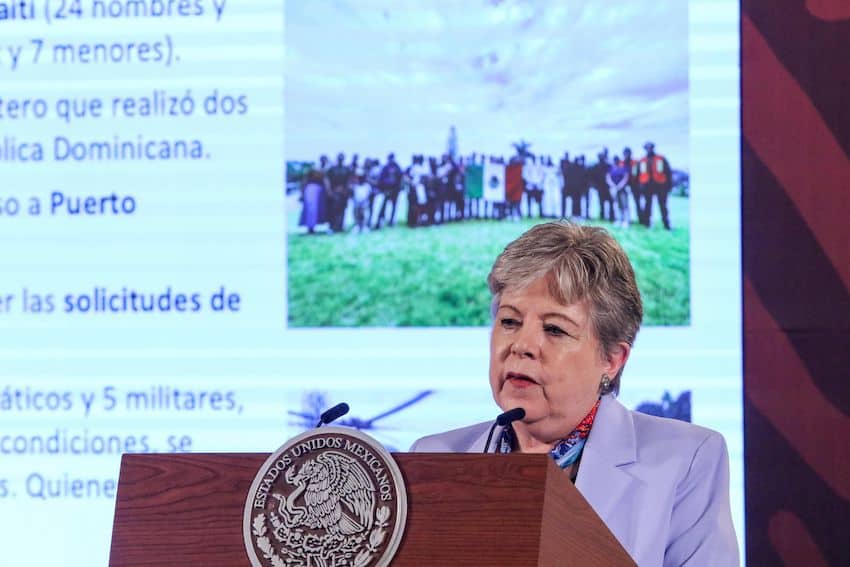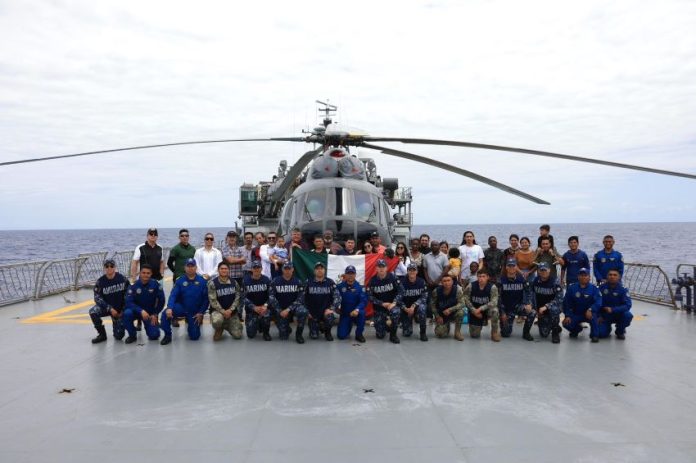Due to the deteriorating political and security situation in Haiti, Mexico staged an operation early Sunday morning to evacuate 34 Mexican citizens aboard a military ship.
The group included 24 women and 10 men, of which seven are minors and four are diplomatic officials, according to statements from Foreign Minister Alicia Bárcena during President Andrés Manuel López Obrador’s Monday morning press conference.

The United Nations Human Rights Office stated on Thursday that Haiti, where violence has killed more than 1,500 people so far this year, is experiencing a “cataclysmic situation” that has brought the turmoil-stricken Caribbean nation “close to collapse.”
The New York Times cited “corruption, impunity and poor governance, together with increasing levels of gang violence” since late February, when several gangs joined forces to attack strategic locations in the capital.
A major factor behind the Mexican rescue operation was “the illicit control that armed groups have over the Toussaint Louverture International Airport” in Port-au-Prince, according to a statement from the Foreign Affairs Ministry (SRE), a situation that “prevents civilians from leaving.”
SRE cited other “violent acts” and “threats to keep the country paralyzed” as reasons behind what Bárcena called “a special operation” by the Mexican Navy.
To rescue the 34 Mexican nationals who were in “a risky situation,” according to López Obrador, Mexico sent a Navy ship into waters near Haiti. The operation began at 4 a.m. on Easter Sunday, according to officials.
The Mexicans were taken by helicopter to the ship, and were due to arrive soon at Puerto Progreso, Yucatán, according to Mexican officials on Monday morning.
The operation was ordered by López Obrador, who noted, “We did a survey in Haiti to see who wanted to return, and everyone who returns does so voluntarily.”
SRE noted that the somewhat secret operation — it was not announced in advance — was conducted by personnel from SRE and the Navy (SEMAR). It was undertaken in response to a situation in Haiti that includes “shortages of food and basic products, economic paralysis and closure of public services.”
The Mexicans were transferred in two flights by a Navy MI-17 helicopter from the heliport of the Dominican Republic Embassy in Port-au-Prince. The Navy ship ARM Holbox Island was used in the operation (ARM stands for “Armada de México,” in much the same way USS is used to connote “United States Ship”).
The Mexican ambassador in Haiti, Daniel Cámara Ávalos, helped coordinate the operation with SRE and SEMAR.
The SRE statement noted that the Mexican Embassy in Port-au-Prince will remain open “with a minimum number of officials to protect the facilities and serve the compatriots who decided to remain in the Caribbean country.”
With reports from El Universal and El Economista
